Neoplastic Cell Evolution Investigators
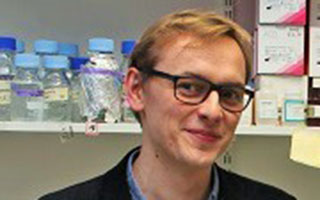
Trevor Graham
Professor, Barts Cancer Institute, QMUL
Professor Trevor Graham leads the Evolution and Cancer laboratory at the Barts Cancer Institute, QMUL in London, UK. The lab focuses on measuring the dynamics and drivers of somatic evolution in human tissues, particular in the gastrointestinal tract, and tries to use these measures to better predict cancer development risk in premalignant disease, and determine prognosis and optimise treatment regimes in established cancers.
His multidisciplinary lab combines expertise in both theory (maths, physics, computer science, evolutionary biology) together with empirical measurement (molecular genetics, histopathology, bioinformatics). Trevor’s background is similarly multidisciplinary. His undergraduate training was in mathematics (Imperial College London, 2002) and he has a PhD in Mathematical Biology (University College London, 2009, supervised by Ian Tomlinson and Karen Page). It was during his PhD he had his first experience of the wet-lab as part of a (fantastically inspiring) sabbatical placement with Darryl Shibata. Post-PhD, Trevor was a postdoc in Nick Wright’s Histopathology laboratory (London Research Institute, 2008-2011 the forerunner of the Crick Institute) before spending two more years as a postdoc with Carlo Maley (UCSF, 2011-2013). He joined the Barts Cancer Institute as a lecturer (assistant professor) in late 2013. His lab is principally funded by Cancer Research UK and the Wellcome Trust.
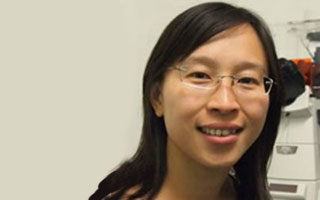
Yinyin Yuan
Team Leader, The Institute of Cancer Research, London
Yinyin Yuan joined the ICR in 2012 as the leader of the Computational Pathology and Integrative Genomics team. Currently, her team is part of the Centre for Evolution and Cancer and the Division of Molecular Pathology. Her team develops computational approaches to study tumours as evolving ecosystems by fusing digital pathology, bioinformatics and ecological statistics.
Her research focuses on the emerging concept that tumours are complex, evolving ecosystems with dynamic crosstalk among cancer, immune and normal cells. Studying the complex relationships between cancer cells and their natural habitats allows for development of new and effective therapeutic interventions, analogous to draining the swamps to help eradicate malaria.
By combining high-throughput pathological image analysis, machine learning and spatial statistics, her team studies how genetically different cancers grow and spread under selective pressures from the tumour microenvironment. Her team was among the first to demonstrate the use of spatial statistics in large-scale inference of microenvironmental spatial heterogeneity, which led to the development of new immune scoring methods and mechanistic studies of immunosuppression in solid tumours.
Yinyin was trained in computer science and bioinformatics. She obtained her academic degrees in computer science during her education at the University of Science and Technology of China (BSc 2003) and University of Warwick (MSc by research 2005, computer vision and steganography; PhD 2009, machine learning and bioinformatics).
Her postdoctoral work in cancer bioinformatics at the Cancer Research UK Cambridge Institute focused on the discovery of new subtypes in 2,000 breast cancers using large-scale machine learning and image processing on molecular data and pathological images. From 2010-2012 she served as a member of the governing body at Wolfson College, University of Cambridge. Outside work, she is a keen hiker and rock climber.
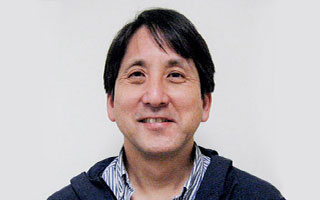
Darryl Shibata Co-PI
Professor, University of Southern California
After attending UCLA for his undergraduate degree, Dr. Shibata obtained his medical degree from the Keck School of Medicine of USC. After completing his internship training in pediatrics from UC San Diego, Dr. Shibata returned to USC for his residency and fellowship at LAC+USC Medical Center. Currently, Dr. Shibata has clinical appointments at both LAC+USC Medical Center and USC/Norris Comprehensive Cancer Center. In addition to his wide array of responsibilities in the research, education and practitioner capacities, Dr. Shibata sits on the editorial board of the BMC Cancer Journal and the American Journal of Pathology.
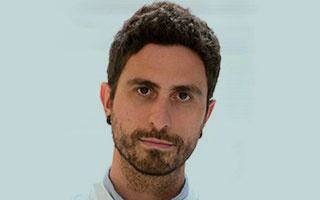
Andrea Sottoriva
Team Leader, The Institute of Cancer Research, London
Dr Andrea Sottoriva obtained his BSc in computer science from the University of Bologna in 2006 and his MSc in computational modelling from the University of Amsterdam in 2008. While attending his BSc and master’s he worked in neutrino physics at the Department of Physics of the University of Bologna and at the Institute for Nuclear and High Energy Physics (NIKHEF) in the Netherlands as a research assistant. During his master’s he specialised in computational biology and bioinformatics and became interested in mathematical modelling of cancer. This emerging field employs rigorous mechanistic modelling and simulations to understand complex biological systems such as cancer.
In 2012 he completed his PhD in cancer genomics and modelling at the University of Cambridge within the CRUK Cambridge Research Institute, focusing on the integration of computational models with cancer genomic data. After his PhD he conducted postdoctoral research at the University of Southern California within the Norris Comprehensive Cancer Centre, investigating the use of multiple sampling genomic data from human malignancies to understand tumour evolution.
Dr Sottoriva joined the Centre for Evolution and Cancer at The Institute of Cancer Research, London, in 2013, where his research focuses on using multi-disciplinary approaches based on high-throughput genomics and mathematical modelling to understand cancer as a complex system driven by evolutionary principles. The goal of his group is to identify those patient-specific rules that regulate the development and progression of the disease, to inform prognosis and novel therapeutic options that are tailored to the need of the individual cancer patient.
He is currently the Chris Rokos Fellow in Evolution and Cancer at the ICR.
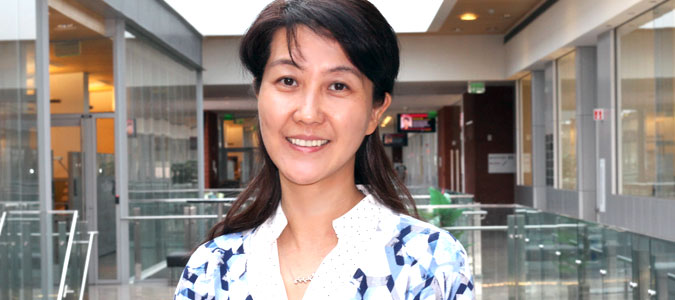
Li Liu
Assistant Professor, Arizona State University
Dr. Liu is an assistant professor of Biomedical Informatics and the director of the Bioinformatics Core Facility at Arizona State University. She holds an M.D. degree in Medicine and an M.S. degree in Information System. As a trained clinician and a bioinformatics researcher, she fully appreciates the critical roles genomic medicine and bioinformatics play in advancing precision medicine. By integrating genomic, phylogenetic, population genetic, statistical and machine-learning techniques, Dr. Liu and her research team investigate clinical and molecular signatures of human diseases, and develop novel computational methods to discover biomarkers for early diagnosis and accurate prediction of therapeutic responses for individual patients. Before joining ASU, Dr. Liu helped build and directed the bioinformatics core facility at University of Florida.

Christina Curtis
Assistant Professor, Stanford University
Christina Curtis, PhD, MSc is an Assistant Professor in the Departments of Medicine (Oncology) and Genetics in the School of Medicine at Stanford University where she leads the Cancer Systems Biology Group and serves as Co-Director of the Molecular Tumor Board at the Stanford Cancer Institute. Trained in molecular and computational biology, she received her doctorate from the University of Southern California in 2007 advised by Simon Tavaré, and holds Masters degrees in Bioinformatics and Computational Biology from the University of Southern California and in Molecular and Cellular Biology from the University of Heidelberg, Germany. She has been the recipient of several young investigator awards, including the 2012 V Foundation for Cancer V Scholar Award, the 2012 STOP Cancer Research Career Development Award, a 2016 AACR Career Development Award and was named a Kavli Fellow of the National Academy of Sciences in 2016. Dr. Curtis is the principal investigator on grants from the NIH/NCI, Department of Defense, American Association for Cancer Research, Breast Cancer Research Foundation, Susan G. Komen Foundation, V Foundation for Cancer Research and Emerson Collective. She also serves on the Editorial Boards of Breast Cancer Research, Carcinogenesis: Integrative Biology, the Journal of Computational Biology and JCO Precision Oncology.
Neoplastic Cell Evolution
This project takes into account both the evolution of cancer cell mutations and the environment surrounding a tumor in order to develop a better predictive test for the invasiveness of a tumor.